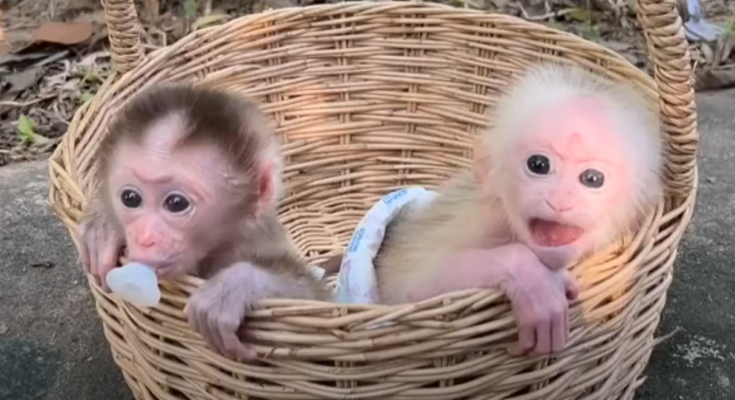Bringing home a poor, abandoned baby monkey is both a compassionate act and a significant responsibility. When you first encounter the tiny creature, it’s hard not to feel a surge of empathy. Its fragile body, wide eyes, and helpless demeanor tug at your heartstrings. However, caring for a baby monkey requires careful planning, dedication, and knowledge to ensure its survival and well-being.
The first step is to create a safe and warm environment. Baby monkeys are highly sensitive and need a cozy space to feel secure. A soft blanket, a small box, or a pet carrier can serve as a temporary nest. Keep the area quiet and free from loud noises or disturbances, as stress can be harmful to the baby monkey’s health.
Feeding is the next critical step. Baby monkeys rely on their mothers for milk, so you’ll need to find a suitable replacement. Specialized formula for primates or kitten milk replacer can be used, but it’s essential to consult a veterinarian or wildlife expert for guidance. Feeding should be done with a small syringe or bottle, ensuring the baby is fed every few hours. Overfeeding or improper feeding techniques can lead to serious health issues.
Hydration and warmth are equally important. Baby monkeys cannot regulate their body temperature well, so a heating pad set on low or a warm water bottle wrapped in a cloth can help maintain their body heat. Monitor the baby closely for signs of dehydration or illness, such as lethargy, diarrhea, or lack of appetite.
While your intentions are noble, it’s crucial to remember that wild animals belong in their natural habitat. Contact a wildlife rehabilitation center or primate rescue organization as soon as possible. They have the expertise and resources to provide proper care and eventually reintroduce the baby monkey to the wild. Your kindness can give this little one a second chance at life.
